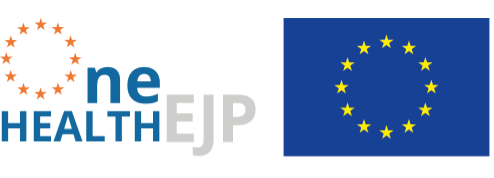Thank you to everyone who took part in the Summer School 2021. See some testimonials below and read our blog post about this event.
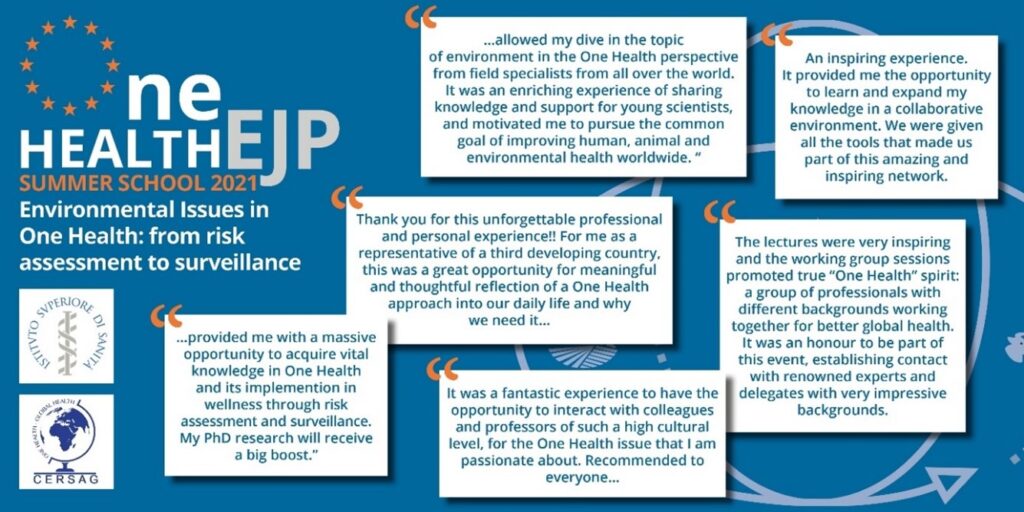
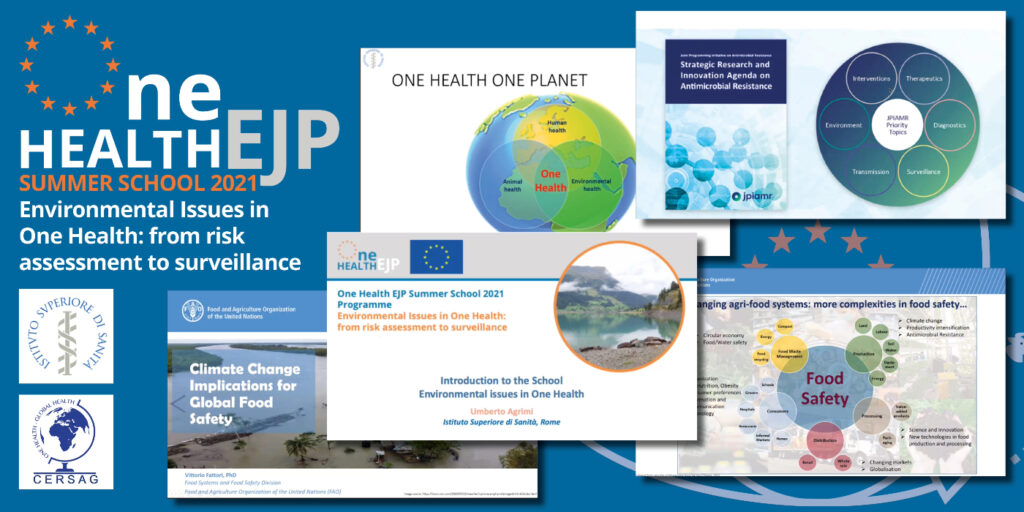
When?
26th July- 6th August 2021
Where?
Online
What was the aim of the One Health EJP Summer School 2021?
The environment is one pillar of One Health, and environmental issues need to be illustrated and discussed in their multi faceted aspects: risk assessment, role of ecosystem related factors, role of man made factors, the farm as environmental modifier, and the issue of sustainability.
Therefore, this Summer School was split into 4 modules:
Module 1: this module included One Health topics of planetary health, environmental risk assessment, climate change, zoonoses and antimicrobial resistance in the natural environment, the use of genomics in surveillance, wildlife, feeds, health sustainability and epidemiology.
Module 2: this module was a workshop on One Health, sustainability and food security delivered by the FAO.
Module 3: this module consisted of two workshops from our partners in Italy (IZS and ISS). These workshops worked on two different One Health case studies:
- One Health surveillance of AMR
- A multidisciplinary One Health approach to environmental pollution.
Module 4: this module included topics such as integrated risk analysis, One Health governance and science to society understanding.
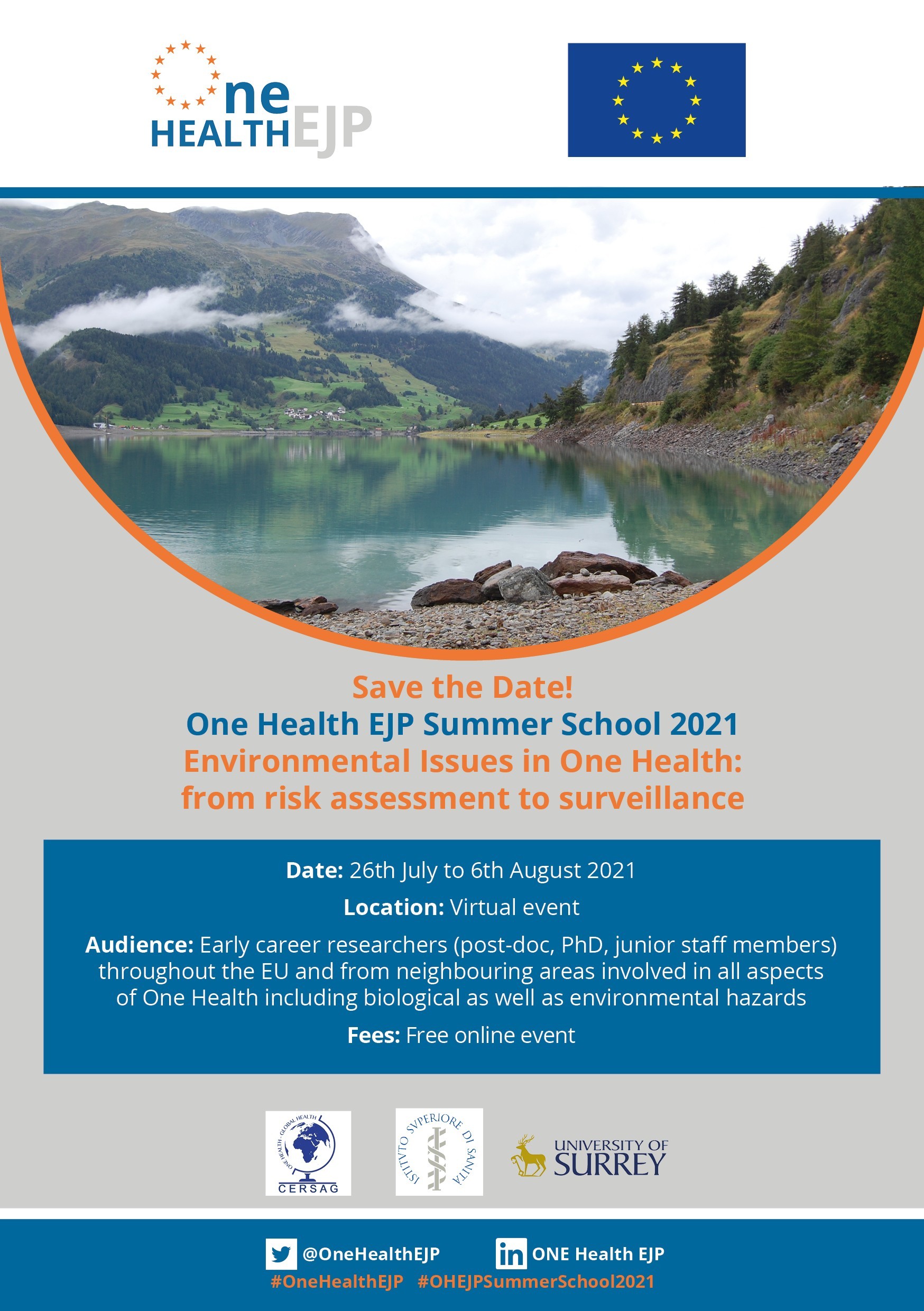
Our Speakers
Dr Alberto Mantovani
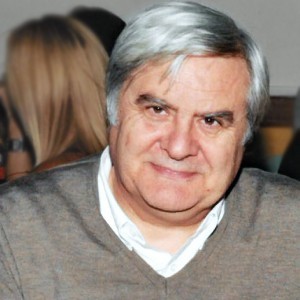
Alberto Mantovani (DVM, Msc, 1956) [email protected]. I am a senior scientist of the Italian National Institute of Health (Istituto Superiore di Sanità, ISS), with two main fields of expertise i) research in toxicology, especially on emerging aspects such as endocrine disruption: I co-ordinated the two Italian pilot projects on endocrine disruptor toxicology (2000-3) and biomonitoring (2008-11), and on 2017 I have been president and of the European Teratology Society. ii) risk assessment: since 1993 I contribute to the development of the international framework of toxicological risk assessment within OECD (since 2000), EFSA (since 2003 in the areas of feeds, pesticides and emerging risks) and ECHA (since 2010) activities, as well as within the Italian National Food Safety Committee (since 2011). Risk assessment has been also a stream pointing toward One Health: for instance the EFSA assessment of pesticides and substances used in feeds calls for an integrated evaluation of risks for consumers, users, domestic animals and ecosystems. I see One Health as an interdisciplinary approach to deal with complex issues (from climate changes through to antibiotic resistance and bioaccumulating toxicants), based on the recognition that the health of human beings is inextricably linked to the health of animals and the environment (see “The Environment-Animal-Human Web: A “One Health” View of Toxicological Risk Analysis”, Frazzoli & Mantovani, eds., Front Public Health 2018). Thus, I took with enthusiasm the opportunity to contribute to the One Health European Joint Programme and to the organisation of its Summer School 2021.
Dr Umberto Agrimi
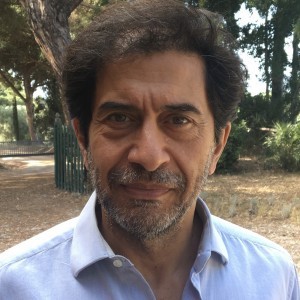
Doctor in Veterinary medicine with 30 years of experience in veterinary public health. As a researcher, I have focused my activity on animal emerging infectious diseases. In particular, I carry out research activity on animal prion diseases with the aim of investigating their zoonotic potential, studying their pathogenesis and identifying genetic susceptibility factors. My research group developed one of the most susceptible rodent models for prion diseases thanks to which we characterised many human and animal prion strains and aim to investigate the molecular basis of prion protein misfolding, a mechanism behind most human neurodegenerative diseases.
Since 2009, I have been the Director of the Department of Food Safety, Nutrition and Veterinary Public Health, at the Istituto Superiore di Sanità, the Italian national health institute.
Working as a veterinarian at the most important Italian public health institute, I am leading the Department towards a One Health (OH) dimension by promoting this approach both in the field of foodborne diseases, and in that of chemical-toxicological food safety. The goal is to establish an integrated vision and approach to health problems related to food consumption and zoonoses, encompassing the entire food production chain and the emergence of pathogens, from the field, the environment and the animals, up to the surveillance of diseases in humans.
I have published over 110 peer reviewed publications, mainly on prion diseases and infectious diseases.
Dr Stéphan Zientara
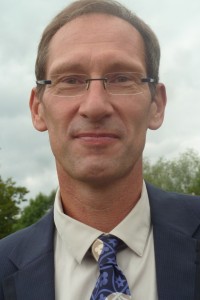
Stéphan Zientara was born on the 7th of April 1964 in Maisons-Laffitte (near Paris). He was graduated as doctor in veterinary medicine in 1987 (Nantes veterinary school), in veterinary sciences (PhD) in 1995 (Nancy University) and HDR in 2001 (Lyon University).
Stéphan Zientara is Director of the Joint Research unit 1161 in Virology ANSES/INRA/ENVA. He is also Deputy Director of the laboratory of Animal health in Maisons-Alfort (France) and Director of the European Union reference laboratory on equine diseases and head of the OIE reference laboratory on EHDV.
Stéphan Zientara is member the expert committee for animal health at the French Food Safety Agency (Anses) and expert on animal health for international organizations such as OIE (World organization for animal health), FAO (Food and Agriculture Organization), EFSA (European Food Safety Authority) and UE (European Commission) on viral diseases (AHSV, FMDV, BTV, WNV, …).
His research interests cover several aspects of animal virology, especially the study of animal virus-host interactions and the evolution of viral populations through genetic recombination and reassortment in orbiviruses. These scientific activities generated more than 500 papers (240 papers in peer reviewed papers (Pubmed).
Dr Paolo Vineis
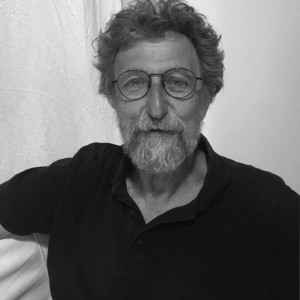
Paolo Vineis is Chair of Environmental Epidemiology at Imperial College London and Visiting Scientist at the Italian Institute of Technology (Genova). He is a leading researcher in the field of molecular epidemiology and his latest research focuses on environmental exposures and intermediate markers from ‑omic platforms in large epidemiological studies. He also investigates the effects of climate change on non-communicable diseases. Paolo Vineis is coordinator of the European Commission funded Exposomics (on air pollution) and Lifepath (H2020, on socio-economic inequalities and ageing) projects, both based on the development of omic technologies, and is a principal investigator or co-investigator of numerous international projects. He has more than 1000 publications in journals such as Nature, Science, Lancet, and Lancet Oncology (H-index 138). He is the author of “Health without Borders. Epidemics in the Era of Globalization”, Springer 2017.
Prof Susana Viegas
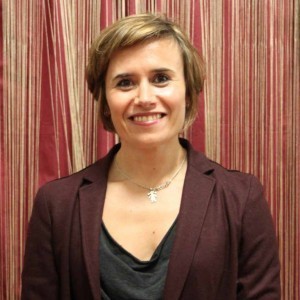
Graduated in Environmental Health from Lisbon School of Health Technology – Polytechnic Institute of Lisbon. Two Master degrees: Safety and Ergonomics from Lisbon University and in Applied Toxicology from Surrey University, United Kingdom. PhD in Occupational and Environmental Health from National School of Public Health, NOVA University of Lisbon where she is a Professor in the Department of Occupational and Environmental Health. Member of the Scientific Committee of the European Environment Agency. Adviser for the Portuguese Environment Agency and Expert in Risk Assessment Committee of the European Chemical Agency (ECHA), where she worked before as a co-opted member.
The main research areas are environmental and public health, occupational and environmental toxicology, exposure and risk assessment to chemicals. Prof. Viegas is involved in several ongoing research projects such as: mixtures exposure and risk assessment, different tools to perform exposure assessment, mycotoxins, climate change, exposure to hazardous drugs and risk assessment.
Dr Vittorio Guberti
![Guberti_Foto[1] Guberti_Foto[1]](https://onehealthejp.eu/wp-content/uploads/2021/03/Guberti_Foto1-300x215.jpeg)
Vittorio Guberti is a veterinarian epidemiologist with more than 30 years of experience in the preparation and implementation of disease control and eradication programmes in wildlife. He is working at the Italian Institute for Environmental Protection and Research where he has developed experience and competency in control and eradication programs of several TADs including Avian Influenza, Classical and African Swine Fever, within the Euro-Asiatic context. Furthermore, via the collaborations with FAO, EFSA, EC and OIE, he has also become an international expert in TADs surveillance, control and eradication. For FAO he was technical advisor for the implementation of Technical Cooperation Programs in the East European countries, the Caucasus and Central Asia; his task included among others the development of a regional legislative framework based on the SPS-OIE standards and requirements; he was appointed for ASF since 2008 for both Georgia and Armenia and in the following years as epidemiologist dealing with ASF in Ukraine and Belarus; since 2014 he is a member of the European Union Veterinary Emergency Team (EUVET) and he has been involved in the control of ASF in all the EU infected Member States addressing the management of the infected wild boar populations. He is member of the Standing Group of Experts under the FAO/OIE GF-TADs umbrella.
Dr. Marco Silano
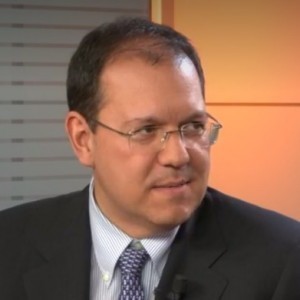
Dr. Marco Silano got his MD degree at catholic University in Rome in March 1996 and his residency in Pediatrics at University of Milan in April 2000 (both with honors). He attended the Division of Nutritional Sciences at Cornell University, Ithaca, NY, USA as Visiting Fellow from May 1999 to March 2000. In this period, he conducted experiments about the metabolism of long chain polyunsaturated fatty acid in the enterocytes.
Presently, Dr. M. Silano is Senior Investigator and Head of the Unit of Human Nutrition and Health – Department of and Food Safety, Nutrition and Veterinary Public Health at Italian National Institute of Health – Istituto Superiore di Sanità – Roma – Italy. The main fields of his research are food intolerance (with emphasis on celiac disease), infant nutrition (breastfeeding and weaning) and prevention of obesity.
He published 71 papers in English on peer – reviewed scientific journal with impact factor. H-index=30
Since 2009, Dr Silano is member of Scientific Board of Italian Celiac Patients Association and since 2014 he has been chairing the Board.
Dr. M. Silano is member of several Working Groups at Italian Ministry of Health, that address public health issues, such as breastfeeding, weaning, nutrition, obesity, nutritional labelling and celiac disease diagnosis.
Dr Maurizio Ferri
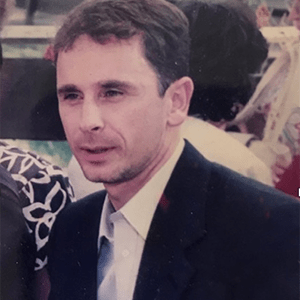
Born in Belgium, Doctor in Veterinary Medicine and post-graduated in Inspection of Foods of Animal Origin and Physiopathology of Animal Reproduction, Dr Ferri has more than 25 years of professional experience in the field of veterinary public health and food safety. Since 1991 to date, he worked as veterinary officer and gained professional experience in the field of Veterinary Public Health and Food Safety. Dr Ferri worked as veterinary expert in many EU funded projects for the implementation of the acquis communautaire, and performed assessment missions and delivered training on animal welfare, food safety, HACCP and microbiological risk assessment on behalf of the EU Commission, mainly by TAIEX. He was trained on quantitiative microbiological risk assessment at University of Maryland (USA) and lectured at Risk Analysis meeting and workshop in US and Europe. He also contributed to many EFSA Scientific Colloquium Reports. His new research area includes: political and regulatory environment for sharing food pathogens genome sequences via a global database, interlink science-policy in complex systems, viral genomic surveillance of wildlife, trandisciplinary operationalization of the One Health concept.
Dr Adriano Casulli
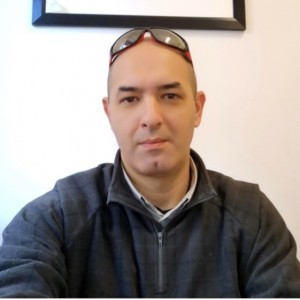
Adriano Casulli, PhD, is the head of the WHO Collaborating Centre for the Epidemiology, Detection and Control of Cystic and Alveolar Echinococcosis (in animals and humans), member of the European Union Reference Laboratory for Parasites and senior scientist at the Department of Infectious diseases at the Italian NIH (Istituto Superiore di Sanità, Rome, Italy). International public health research expert in the field of Neglected Tropical Diseases (NTDs) with a focus on molecular and clinical epidemiology, anthelmintic drugs, and biomarker discovery on cystic and alveolar echinococcosis.
He is co-author of more than 110 scientific publications, evaluator for international research projects and member of the Editorial board of 5 scientific journals, including Deputy Editor of “PLoS Neglected Tropical Diseases”. He is the coordinator of several granted international collaborative research projects. He is data passionate and science lover.
Dr Gianfranco Brambilla
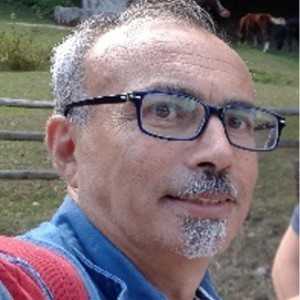
Gianfranco Brambilla, DVM, post graduate specialization in Veterinary Public Health, EAVTP Diplomate, National Scientific Qualification as Full Professor in Veterinary Toxicology, https://orcid.org/0000-0003-1571-1203, h-index 33, is Author of 119 peer reviewed publication. Currently in the staff of the EU-RL VTEC at ISS, Rome, Italy in charge of R&D activities. Member of the OECD WG on the reduction/substitution of PFAS, currently participates to the EIONET activities supporting the EU EEA agenda on circular economy, with respect to the water reuse and the disposal of sludges and derived composts on agricultural soils. Expertise in: emerging risks from circular economy and anthropogenic pressures on the feed and food chain, assessment of end-of-waste criteria and of environmental quality standards of rural areas to support food safety and food security, environmental fate of veterinary drugs, transfer of priority persistent and pseudo-persistent contaminants from environmental compartments to the forages and to the food chain.
Prof Bruno Gonzalez-Zorn
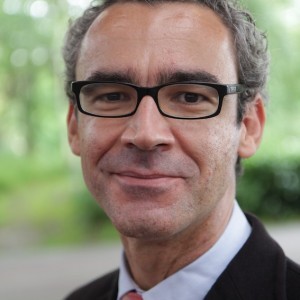
Prof. Bruno Gonzalez-Zorn, DVM, PhD is Head of the Antimicrobial Resistance Unit at the Complutense University in Madrid. He gained his DVM in 1996 studying in Spain and Germany and his european PhD in 2001 under the supervision of Prof. Vazquez-Boland. After his Postdoc at the Pasteur Institute in Paris he received a Ramon y Cajal tenure-track contract from the Spanish Ministry of Science to return to Spain. In 2011 he was awarded the National Microbiology Award, from the Spanish Society for Microbiology, the National Antimicrobial Resistance Research Award from the Ministry of Health in 2018, and in 2020 the Award for antimicrobial resistance alternatives from the Veterinary Royal Academy. He was the former President of the Molecular Microbiology Group of the Spanish Society for Microbiology and member of the SAB of JPIAMR. Currently he leads research projects on molecular microbiology and the ecology of antimicrobial resistance in Madrid. His interests focus on the ecology of antimicrobial resistance, including humans, animals, food and the environment, focusing on genomics from a One Health perspective.
Dr Marco Vighi
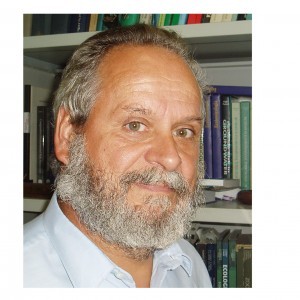
Marco Vighi received his degree in Biology at the University of Milano, in 1969.
From 1969 to 1983 he was research assistant at the Water Research Institute of the National Research Council in Italy. In 1983 he got a chair at the Faculty of Agriculture of the University of Milano where he was professor of Agricultural Ecotoxicology. In 1998, he moved to the Department of Earth and Environmental Sciences of the University of Milano-Bicocca, as professor of Ecology, Applied Ecology and Ecotoxicology and responsible of the Research Group on Ecotoxicology of the Department. He retired in November 2015.
Since December 2015 up to July 2020 he was Principal Investigator and responsible of the Ecotoxicology Research Group at the IMDEA Water Institute, Alcalà de Henares, Spain. Now he is external consultant of the IMDEA Water Institute.
The scientific activity of M. Vighi has been addressed toward several issues of applied ecology, environmental pollution and ecotoxicology.
He has been member of Scientific Committees on Toxicology and Ecotoxicology of the European Commission (now SCHEER) from 1991 to date. Consultant for many international organizations (UNPD, UNEP, WHO).
In 2018 he got the Environmental Education Award from the SETAC (Society of Environmental Toxicology and Chemistry).
He is author of more than 200 scientific papers and books.
Dr Vittorio Fattori
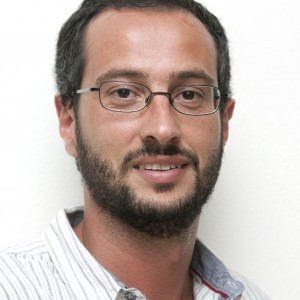
Before joining the FAO, Vittorio Fattori has worked in research laboratories both in academia and private companies in different countries including the UK, Japan, and the USA. His activities have focused on the assessment of food safety risks posed by some contaminants and pesticides. Following his research, he spent some time in Africa, where the work in a rural community has further impressed upon him the need for guidance and support concerning food safety and public health.
In 2008 he joined FAO where he is working as food safety officer both coordinating the foresight programme on emerging food safety issues, and providing scientific advice.
Some of the key areas of work include:
- Provision of scientific advice to the Codex Alimentarius and FAO members, in particular within the Secretariat of the Joint FAO/WHO Expert Committee on Food Additives (JECFA), which covers risk assessment of food additives, contaminants and residue of veterinary drugs in food.
- Technical guidance on food safety regulatory issues (including emerging issues).
- Capacity development to support risk based approaches in food control systems and food safety management.
- Coordination of food safety projects around the world, aimed at generating food safety data to inform policy-making.
Dr Hein Imberechts

Hein Imberechts holds a degree of Veterinary Medicine (1985, University of Ghent, Belgium) and of Molecular Biology (1988, Free University of Brussels, VUB); he obtained a PhD in 1992.
From July 2001 until January 2015 he was the Head of Department of bacteriology at CODA-CERVA, the Belgian reference laboratory for infectious animal diseases. Since February 2015 he is Scientific Support Advisor at Sciensano, the Belgian Institute for Health.
He was member of the scientific committee of the Federal Agency for the Safety of the Food Chain in Brussels between 2001 and 2016, and president of Veterinary Working Group of the Belgian Antibiotic Policy Coordination Committee between January 2015 and December 2017. Since December 2019, he is member of the Scientific Council of ANSES in Paris.
Since 2012 he represents the institute in the MedVetNet Association and since October 2018 he is Vice-President of this association. As from October 2019, he is elected chair of the Animal Health and Welfare Collaborative Working Group of SCAR. In 2016, he created with the veterinary faculties of UGent and ULiège STAR-IDAZ.be, a regional consortium of the global animal health network.
Since January 2018 he is scientific coordinator of the One Health European Joint Programme within Horizon2020 together with ANSES (Paris, FR). This project is a network of 44 animal and public health partners in 22 member states and manages a budget of €90M (50% co-fund).
Dr Paola Scaramozzino
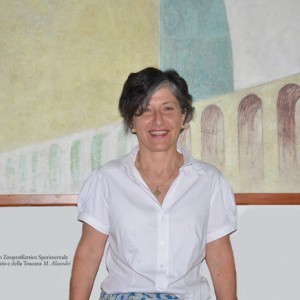
Professional experience 1988 -Contract veterinarian at ISS – Rome (WHO Collaboration Centre). 1990-1998 Veterinarian at Istituto Zooprofilattico Sperimentale dell’Abruzzo e Molise (Teramo). Since 1999 Veterinarian at Istituto Zooprofilattico Sperimentale del Lazio e della Toscana. Current position: Head of Epidemiology Unit.
Education: Degree in Veterinary Medicine (Perugia 1987). Doctorate (PhD) in Parasitology and parasitic diseases of domestic animals (Bari 1991). Stages at several scientific Institution in UK, Israel, Cuba and France (1992-2000). Master in Epidemiology (Catholic University of Rome, 2008-2009). Languages skill: Good English and Spanish; basic German.
Other skills and nomination: Infectious and parasitological animal diseases and relative surveillance systems under One-health perspective. Environmental epidemiology. Health statistic. Health Informative systems. 1989 – 2006 Member of Italian Society of Parasitology. Since 2019 member of Italian Association of Epidemiology (One Health working group). Member of regional committee on Arbovirosis. IZSLT Contact person non epidemic emergencies. Rewiever for several scientific journals on epidemiology, parasitology and vector borne diseases. Data manager for Covid data. Head of unit of more than 20 scientific projects founded by Ministry of health. Author of about 100 publications , 45 of which with IF.
Dr Roberto Pasetto
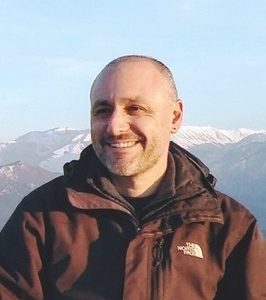
Roberto Pasetto, MSc in Epidemiology, is a researcher of the Unit of Environmental and Social Epidemiology at ISS (the Italian National Institute of Health) and member of the staff of the WHO Collaborating Centre for Environmental Health in Contaminated Sites in which he is responsible for activities on environmental health inequalities and Environmental Justice in contaminated sites.
He has gained almost two decades of experience in the design and management of epidemiological studies in the environment and health sector. At present, he is the Principal Investigator or Work Package leader in capacity building and research projects regarding environmental epidemiology, environmental health equity, health impact assessment, interconnections between public health and performing arts. Recent fields of research are the application of health impact assessment procedures to newly planned or renewed industrial plants and the inclusion of social and community theatre in the empowerment of deprived communities living in polluted areas. Major publications are available at https://www.researchgate.net/profile/Roberto-Pasetto
Dr Frank Boelaert
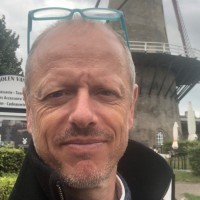
I am a Veterinary Public Health professional with more than 30 years work experience. During the first part of my career I was mainly active in the animal health sector, in Africa and Belgium, where as an official field veterinarian I managed the control and eradication of notifiable diseases in animals. During 2004-2005 I worked for the Belgian Federal Agency for the Safety of the Food Chain, to join next the European Food Safety Authority (EFSA) from 2005 onward.
Within EFSA I am senior scientific officer within the Unit on Biological Hazards and Contaminants Unit. My job for EFSA consists in surveying and monitoring zoonoses in the EU, along all stages of the food chain. This means on the one hand designing and analysing baseline surveys for the prevalence of zoonoses at different stages of the food chain (primary production, abattoirs or retail), and on the other hand running an annual data collection for zoonoses (according Directive 2003/99) and producing the annual EU One Health Zoonoses report, jointly with the European Centre for Disease Prevention and Control.
Doctor in Veterinary Medicine. Master of Science in Biostatistics. Doctor in Veterinary Science. Diplomate of the European College of Veterinary Public Health.
Dr Antonio Battisti

Antonio Battisti (AB, DVM, ECVPHPM)) is the Head of the Department of General Diagnostics at the Istituto Zooprofilattico Sperimentale del Lazio e della Toscana (IZSLT), Rome, Italy, one of the Veter8inary Public Health Insitutes in Italy. He is also the Head of the National Reference Laboratory for Antimicrobial Resistance, Italy. AB, within the NRL-AR coordinates the National Monitoring Programme of AMR in veterinary medicine in Italy according to the EU legislation. His expertise is in the fields of Animal and Zoonotic Infectious Diseases, Veterinary Epidemiology, including molecular epidemiology. His expertise includes Antimicrobial Resistance in bacterial pathogens and zoonotic and opportunistic bacteria in animals, and in a One-Health perspective at animal-environment-human interface.
His scientific interests in the field of antimicrobial resistances are molecular epidemiology, ranging from clonal spread of AMR agents to horizontal transfer and spread of mobile genetic elements, such as plasmids carrying acquired antimicrobial resistance, fitness and virulence genes.
He has been providing scientific and technical advice for the European Commission on matters related to AMR, as one of the members of the EC WG on AMR in Food.
He is an EFSA Expert and Italian representative in the Scientific Network of Zoonoses Monitoring Data – AMR https://www.efsa.europa.eu/en/events/event/10th-specific-meeting-antimicrobial-resistance-data-reporting-scientific, and past and present Member of WG on AMR monitoring.
He is the Italian representative in the WG on Surveillance of Antimicrobial Resistance in the CODEX (WHO-FAO) Task Force on Antimicrobial Resistance (TFAMR) https://www.fao.org/fao-who-codexalimentarius/committees/committee/en/?committee=TFAMR.
He represents Italy in the Committee for Medicinal Products for Veterinary Use (CVMP, alternate) https://www.ema.europa.eu/en/committees/committee-medicinal-products-veterinary-use-cvmp at the European Medicines Agency, providing expertise and scientific advice on veterinary medicinal products, including antibiotics in animals with a Veterinary Public Health and One Heath perspective.
Prof. Dolores Gavier-Widén
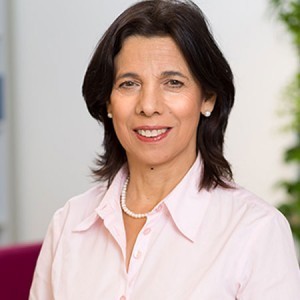
Prof. Dolores Gavier-Widén is a veterinary pathologist at the National Veterinary Institute (SVA) of Sweden and adjunct professor at the Swedish University of Agricultural Sciences (SLU). She is specialised on infectious diseases of wildlife with special focus on emerging infections. She has conducted research and wildlife health surveillance for more than 20 years. She has published more than 100 articles in international peer-reviewed journals and several books/book chapters, including “Infectious diseases of wild mammal and birds in Europe” and has delivered numerous invited presentations internationally. She has provided expert advice to European and international organisations, including, OIE, FAO and EFSA. Dr Gavier-Widén is the Regional Coordinator for Europe for Wildlife Health Specialist Group (WHSG) of SSC, International Union for Conservation of Nature (IUCN) (https://www.iucn-whsg.org/). She is past president of the Wildlife Disease Association https://www.wildlifedisease.org/wda/. She has received several awards and has a passion for wildlife health.
Dr Chiara Frazzoli

PhD in Chemistry, I have trained professionally in the European system for the prevention of toxic exposures through food of animal origin. My research activity on biomarkers focuses mainly on i) the characterization of toxic exposures as one causal risk factor in the aetiology of non-communicable and communicable diseases; ii) early toxicological endpoints that are non-invasive, cost-effective and automatable in sentinel animals; iii) the development and technology transfer of innovative devices for early risk management in the food chain and the environment. I’m co-inventor of two European patents that have led to contracts with SMEs (food and technology industry), important national funding and prizes for social innovation and research in the food sector, as well as European funding in Horizon2020. I have always also engaged in studies out of the curriculum to explore and demonstrate the value of transdisciplinarity between science and humanities. With experience in the third sector, since 2006 I have engaged in field anthropological research for context-effective risk analysis science in traditional cultures and operational research for the promotion of environmental(and food) toxicology and the prevention of risk factors for health in West-Central Africa and East Asia. I am a member of European Cost Actions and the International Society of Global Health, where my efforts point at contributing advocacy in GH on primordial and primary prevention of risk factors, and crossing silos. My belief in the key role of the bottom-up movement led me to establish the pan-African NGO “Nutrition & food safety and wholesomeness. Prevention, education and research network” (NOODLES, https://www.noodlesonlus.org).
Dr Maria Grazia Dente
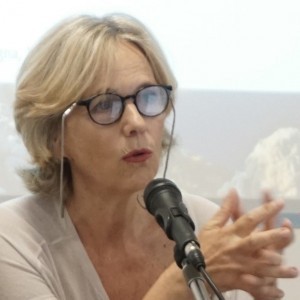
Senior research at the Center for Global Health, at Istituto Superiore di Sanità in Rome (Italy).
Since 2014, key expert for public health interventions and operational research in the European Project “One Health Network For The Prevention of Vector-Borne Diseases in the Mediterranean and Black Sea Regions”. Expertise in international cooperation, preparedness, epidemiological surveillance, cross-border risk assessment and training including contexts of One Health approach. She participated in many European research and institutional initiatives (EC SANCO, EC CHAFEA, EC ECDC, EC DEVCO) at EU and international level with coordination and expert roles of large scientific international networks with final elaboration of guidance and policy recommendations. She has also spent several years abroad with research institutes and NGOs.
Dr Stefano Morabito
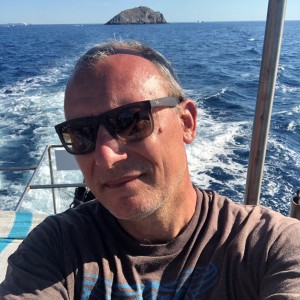
Director, Unit of Foodborne diseases of the Food Safety, Nutrition and Veterinary Public Health Department of the Istituto Superiore di Sanità in Rome, Italy. Director, European Union Reference Laboratory for E. coli. Active in the field of genomics-based solutions to study the genomic asset of the food-borne bacterial pathogens with a focus on Shiga toxin-producing E. coli and to improve the signalling of food borne outbreaks. Other interests include the use of genomics for the study of the STEC phylogeny and the evolution of the different pathogenic E. coli types.
He is author of about 80 peer-reviewed publications and edited the book “Pathogenic Escherichia coli, molecular and cellular microbiology”, published by Caister Academic press. Coordinator of the ARIES project, concerning the development of a shared workspace and the set-up of a public web server for the analysis of genomics data and is coordinating the national collection of genomics data from human isolates of Listeria monocytogenes and Shiga toxing producing E. coli as a concept for the large scale application of this approach to the enhanced surveillance of bacterial food borne diseases.
Dr Francesco Cubadda
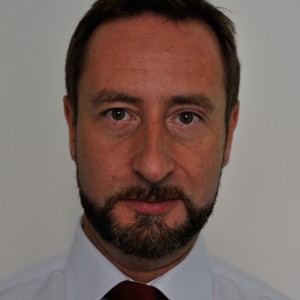
Dr. Cubadda has a background in Chemistry and extensive experience in toxicology, human nutrition and risk assessment. Currently research scientist and team leader at the Italian National Institute of Health (ISS) in the Unit of Human Nutrition and Health of the Department of Food Safety, Nutrition and Veterinary Public Health, dealing with food safety through a multidisciplinary approach embracing nutrition, toxicology, and risk-to-benefit assessment.
Francesco carries out research on chemicals – nutrients and other substances – in food, and their impact on human health. Scientific interests include bioavailability, dietary intake, environmental health, environmental monitoring, exposure assessment, food safety, micronutrient nutrition, nanomaterials, nanotoxicology, risk assessment, and trace elements.
Food-chain transfer of chemical substances, e.g. perfluoroalkyl substances (PFAS), and relevant pathways is an active research field. Francesco is interested in the fate of chemical contaminants and their dynamics from environmental compartments (soil, water, air) to plants and farm animals, and in the processes at the environment-animal-human interface leading to human exposure through food consumption. The assessment of nutrient intake and dietary exposure to chemicals is another major area of expertise. A variety of methodological approaches are used including total diet studies (TDS), duplicate diet studies, biomarkers of intake/status and biomarkers of exposure (human biomonitoring). Francesco led the Italian TDS 2012-2014, funded by the Ministry of Health, which assessed the exposure to a number of contaminants (inorganic arsenic, aluminium, cadmium, lead, methylmercury, inorganic mercury, nickel, uranium, polychlorinated dibenzodioxins, polychlorinated dibenzofurans, dioxin-like polychlorinated biphenyls, non-dioxin like polychlorinated biphenyls, and mycotoxins) and the intake of nutrients (e.g., calcium, iron, copper, zinc, selenium, iodine) of the Italian population.
Expert in risk assessment in food safety, he contributes to the work of the European Food Safety Authority (EFSA) and has been member of >10 working groups of (i) the Scientific Committee, (ii) the Panel on Additives and Products or Substances used in Animal Feed (FEEDAP Panel), (iii) the Panel on Contaminants in the Food Chain (CONTAM Panel), (iv) the Panel on Nutrition, Novel Foods and Food Allergens (NDA Panel), (v) the Panel on Food Additives and Flavourings (FAF Panel). National scientific expert in the EFSA Network for Risk Assessment of Nanotechnologies in food and feed since 2011.
Prof. Wim van der Poel

Prof. Wim H.M. van der Poel, DVM, PhD, is senior scientist at Wageningen Bioveterinary Research and special Professor of ‘Emerging and Zoonotic viruses’ at Wageningen University. He is a principal investigator within the Netherlands Centre of One Health (NCOH), member of the Project Management Board of the European Joint Program One Health and coordinator of the EPIZONE European Research Group, the network on epizootic animal diseases research. The research work of Prof. Van der Poel involves at least three main areas: New and emerging viruses, Foodborne and Zoonotic viruses, including Hepatitis E virus, and ‘Global One Health’. In the these areas his research has primarily been focusing on the detection and characterization of viruses in the different hosting animals, as well as in food and environmental matrices. Controlling the risks of infectious diseases and chronic diseases are crucial to food security, public health, climate change and biodiversity. A Global one Health research approach is needed to achieve that.
Dr Gaia Scavia
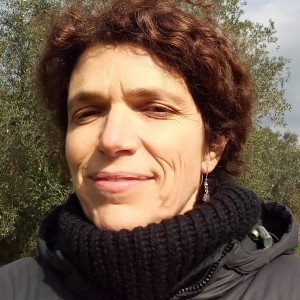
Gaia Scavia, (DVM) Scientist at the Dep. of Food Safety, Nutrition and Veterinary Public Health, staff member of the EURL for E. coli. Istituto Superiore di Sanità (Rome, Italy). Deputy of National Focal Point for ECDC-Foodborne and Waterborne Disease program. Expertise in One-Health epidemiological surveillance, risk assessment, training and communication in foodborne zoonoses and outbreaks investigation in both human and food/veterinary sectors. She participated in many research and institutional initiatives at national and EU level (EFSA, ECDC, EURL, EU Commission, MedVetNet, OHEJP Consortium).
Dr Valentina Rizzi
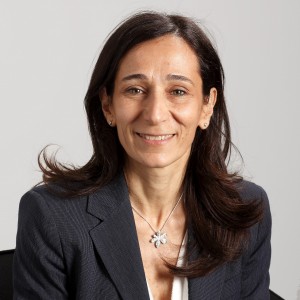
Doctor in Veterinary Medicine, PhD in Pathology of small ruminants, post graduate specialization in Hygiene and technology of milk and dairy products, and Inspection of food of animal origin. She has more than 20 years of work experience in food microbiology and food safety.
From September 1998 until August 2008 she worked at the Istituto Zooprofilattico Sperimentale of Abruzzo and Molise in the food microbiology laboratory, where she was in charge of research projects related to microbiological and molecular analytical methods on food matrices, and projects on food safety and HACCP plans in food processing companies.
Since September 2008 she has been working as senior scientific officer for EFSA in the Unit on Biological Hazards and Contaminants. She coordinates the Team in charge for the production of the annual European Union Summary Reports on zoonoses and on antimicrobial resistance (AMR) prepared jointly with the European Centre for Disease Prevention and Control (ECDC), and on transmissible spongiform encephalopathies (TSE). She supervises the production of joint ECDC-EFSA Rapid Outbreak Assessments (ROAs) in the context of multi-country foodborne events. She also oversees the activities related to molecular typing of foodborne pathogens, including the development of a new system for the collection of Whole Genome Sequencing data on isolates from food and animal samples.
Dr Giuseppina La Rosa
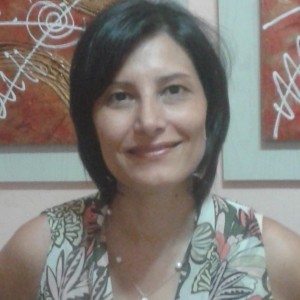
Giuseppina La Rosa, Scientist. Biologist, researcher in the field of environmental virology, working at the Italian National Institute of Health, Department of Environment and Health. In the last 20 year she has been working on molecular characterization and epidemiology of enteric viruses, with focus on hepatitis A and E viruses, enteroviruses, adenoviruses, noroviruses, and emergent viruses that may be present in water environments. Her research activity focuses on the field of water and health, including method development/optimization, surveillance, risk analysis, and molecular based tools to identify and control emergent viruses in water environments. Member and key Contributor of the “Global Water Pathogen Project” (2014-2017), she has been involved in several national and international projects as principal investigator or collaborator. Since the beginning of the COVID-19 pandemic she has been conducting studies on SARS-CoV-2 detection in wastewaters. She is currently coordinating a national surveillance study on SARS-CoV-2 in sewage (SARI project) and other projects on virus detection in environmental matrices.
Dr Ivano Iavarone

Ivano Iavarone, senior researcher in environmental epidemiology at the Italian National Institute of Health (ISS). MSc in Environmental Epidemiology and Policy, London School of Hygiene and Tropical Medicine (LSHTM, UK).
His main activities concern epidemiological research and surveillance of populations living in contaminated sites; children environmental health; health impact of exposure to asbestos, hazardous waste, air pollution; health impact assessment and environmental burden of disease; cancer risk related to mobile phone use. He is currently coordinating the national inter-institutional project EpiCovAir aimed at evaluating the association between long-term exposure to air pollution and incidence of SARS-CoV-2 infection and COVID-19 prognosis.
Lecturer in environmental epidemiology and in environmental public health in taught Courses and Conferences at international level. Expert advisor of Italian Ministry of Health and of WHO in environmental health issues.
Since 2013 Head of the WHO Collaborating Centre for Environmental Health in Contaminated sites (at ISS). In 2015-2019 Chair and Scientific coordinator of the COST Action Industrially Contaminated Sites and Health Network (ICSHNet, https://www.icshnet.eu/), which included the main environmental health institutions of 33 countries.
Since 2018 Head of the Inter-Departmental Structure on Children Health and Environmental Pollution at ISS.
Since 2019 Head of the Environmental and Social Epidemiology Unit at the Department of Environment and Health, ISS.
Author of about 200 papers, book chapters and scientific reports (H-index 25). Author the recent Chapter 2.9 on Contamination of air, water, soil, and food. World Cancer Report 2020: Cancer Research for Cancer Prevention (https://www.iarc.who.int/cards_page/world-cancer-report/).
Dr Kitty Maassen
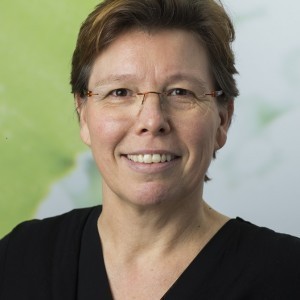
Dr. Kitty Maassen is head of the department Animal & Vector of the Center of Zoonoses and Environmental microbiology of the National Institute of Public Health and the Environment of The Netherlands (RIVM). The focus of this department is to study zoonotic agents via wild life and livestock, including antibiotic resistance and via vectors such as ticks and mosquito’s in relation to public health. She is working at the RIVM since 2011. Before, she was also working in the area of zoonoses at the Central Veterinary Institute in Lelystad (currently WBVR). One of her current tasks is coordinating the signalling forum as part of the Dutch integrated risk analysis structure for zoonoses in which (potential) zoonotic signals are discussed and assessed in a monthly meeting with representatives from the human health, veterinary health and food safety sectors. In line with this work she is coordinator of the project COHESIVE of the One Health European Joint Programme.
Dr Angela Santilio

Angela was graduated in Chemistry at “La Sapienza University” – Rome (IT) on June 1994. Since 1995, she has been worked at National Institute of Health in Rome – Pesticide Unit – Department of Environmental and Primary Prevention and from 2000 she is researcher. The National Institute of Health is the technical body of the Italian Ministry of Health. Her activity is focused on research and technical advices to the Ministry of Health and to peripheral bodies of the National Health Services as regards the plant protection products and their residues. She is author and co-author of paper and abstract symposium for national and international journals.
From 2008 to today, contact point for the National Reference Laboratory for the Single Residue Methods (NRL-SRM). In this framework she participates to the European Proficiency tests (EU PTs) organized from European Reference Laboratory for single pesticide residues methods (EURL-SRM).
She works for the evaluation of Draft assessment Reports (DAR) (IT RMS) for the chemical physical properties, analytical method and residues with their risk assessment for the consumers under EU Regulation 1107/2009 and under Directive 91/414.
She is CIPAC Member form 2013 up today and participates to the CIPAC validation methods for the active ingredient in plant protection products. She organises PTs on Active ingredient in Plant protection Products
She is National expert of National Committee on plant protection product.
She is scientific responsible for the collaboration with Health Ministry on the authorisation of plant protection product European Regulation 1107/2009.
Dr Joana Lobo Vicente
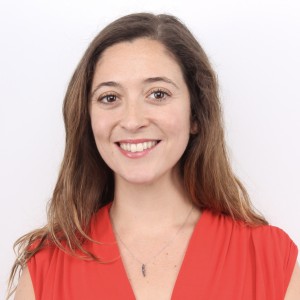
Dr. Joana Lobo Vicente is currently working as an expert in in chemicals, environment and human health at the European Environment Agency (EEA), in the HBM4EU project. Its aims are to coordinate and advance human biomonitoring in Europe and provide better evidence of the actual exposure of citizens to chemicals and the possible health and environment effects to support policymaking.
Before working at the EEA, she was as a Scientific Officer at DG Joint Research Centre (European Commission) where she worked with metabolomics, compound confirmation of suspected illicit substances, and detection and quantification of illicit drugs (classic and new psychoactive substances) in wastewater, drinking water and irrigation water via LC-MS/MS. She also worked in the Food Contact Materials group, in method development and validation of contaminants in foodstuff, organisation of proficiency tests involving BPA; as well as plastic recycling compliance for food contact applications across the member states for circular economy purposes (raw materials).
Joana has a degree in Chemistry from the Faculty of Sciences of the University of Lisbon. She did her MSc in Forensic Science, and her Ph.D in Analytical Chemistry at the King’s College London, in the Drug Control Centre. During her Ph.D she investigated the influences of alcohol in the excretion of testosterone/epitestosterone for doping purposes. After her Ph.D, she was a research analyst for the 2012 Olympic & Paralympic Games, and a postdoctoral research associate at King’s College London.
Dr Sinaia Netanyahu
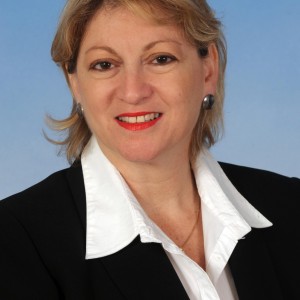
Dr. Sinaia Netanyahu, Programme Manager, Environment and Health Impact Assessment, WHO European Centre for Environment and Health, Bonn.
Dr. Netanyahu served as the Chief Scientist of the Ministry of Environmental Protection in Israel from mid-2011 to March 2018. She has over 25 years of experience as an economic and strategic consultant in the fields of natural resources, environment, climate change and agriculture. Served as a teaching fellow at Ben-Gurion University Negev teaching Climate Change, Health & Emergency Preparedness. In the past, she served as the Manager of Sustainable Financing and as a Senior Economist in TAHAL group and dealt with international and national water and agricultural projects including environmental-health-social impact assessments. Prior to that, she was a faculty member at Ben-Gurion University as well as a fellow lecturer at the Hebrew University.
As Chief Scientist, she has led the writing of the State of the Environment in Israel, the National Strategy and Plan for the Preparation to Climate Change Adaptation which was adopted and approved as a Government Resolution and the National Health and Environment Program awaiting the approval of the ministers and the Government and has promoted the writing of research and studies and conducted the writing of many science-policy documents in environmental, ecological and environmental health areas.
In addition, she served as a member in the following capacities: Board of Directors of the Governmental company for the Protections of the Coastal Cliff, the National Petroleum Advisory Council, the Council for Research Control of Disease Generators, the National Council of Bioethics, the Public Council of Statistics, the National Council for Advancing Women in Science, Chairperson of the Public Council for Evaluating Ecological Systems, the Chairperson of the Managing Board of the Eilat Bay National Monitoring Program, and a member at the Israeli Forum of the Chief Scientists at the Ministry of Science and Technology.
Dr Laura Mancini

Laura Mancini, Degree in Natural Sciences. Master’s degree Environmental Economics and Sustainable Development “. She is currently the director of the Ecosystems Health Unit of the National Institute of Health. Her research group works and publishes extensively on Health and Climate Change, Environmental and Global Change, Ecosystems Health. The activity carried out at ISS has been characterized by an integration between basic research (methodological development), applied research (ecosystem health and primary prevention) and regulatory activity (pre- and post-normative). The her technical and scientific experience has also been consolidated through participation in training events and national and international lectures and collaborations, as well as through the planning and/or responsibility of national and European research projects. Editorial board member in international journals. Reviewer of scientific journals. Author and co-author of international papers, monographs, technical reports and guidelines.
Dr Beatrice Bocca

Graduated in chemistry and researcher at the Italian National Institute of Health (Department of Environment and Health) with main field of expertise in human biomonitoring of populations potentially exposed to metals and nanomaterials in the environment, including food-chain, consumer products and workplace exposures, and evaluation of co-occurring social and behavioral risk factors, contributing to the health promotion of communities and environmental sustainability. Consolidated expertise in validating analytical methods according to ISO/IEC 17025 using advanced and hyphenated techniques (SF-ICP-MS, Quadrupole-ICP-MS, Ion Chromatography-ICP-MS, AF4-ICP-MS and Single Particle-ICP-MS). Member of Italian (AISETOV, SIVR) and EU (FESTEM, ISRCT) scientific societies for the study of trace elements in living organisms. Member of Working Groups for the EU (Safety of Tattoos and Permanent Make-up, Cosmetics, Nanomaterial Definition, Inductively-Coupled Plasma (ICP)). Chemical Group Leader for Hexavalent Chromium within the HBM4EU HORIZON2020 project and currently responsible of national and EU projects (SPoTT2, ARTOO, MAPS HORIZON2020). Co-author of 153 peer reviewed publications (Orcid= 0000-0002-6503-6026; H-index=38), invited speaker in congresses, and co-editor of monographs. Chair and member of scientific committees for congresses (NanoInnovation, International Cadmium Symposium, International Meeting on Health and Environment: Challenges for the Future).
Dr Budimir Plavsic
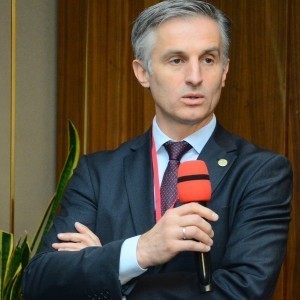
Dr Budimir Plavsic is currently OIE Regional Representative for Europe in Moscow. He is a veterinarian and scientist, committed to the protection of animal welfare, and implementation of the One Health concept. He obtained his DVM degree at the Faculty of Veterinary Medicine in Belgrade, where he started his professional career as an assistant professor for Microbiology. He completed PhD, Master of Veterinary Science and a specialisation in veterinary epidemiology at the same University. He also finished the Faculty of International Management.
Dr Plavsic was Head of Animal Health in Serbian Veterinary Authority for 15 years. Before joining OIE in 2018, he was OIE Delegate of Serbia for more than four years. His wide experience encompasses areas such as control of animal diseases and zoonoses (Rabies, HPAI, WNF, CSF, ASF, FMD, LSD, Brucellosis), development of veterinary legislative, contingency planning and pandemic preparedness, and information systems. He is a permanent member of the Serbian Veterinary Academy, with a status of Scientific Associate and published more than 120 scientific articles.
Currently, he is committed to the coordination of OIE activities, implementation of international standards, and particularly the implementation of One Health priorities with Tripartite partners in Europe. His was elected Secretary-General, and Vice-President of the OIE Regional Commission for Europe. For many years, Budimir Plavsic was a member of: Steering Committee of GF-TADs for Europe, Steering Group on Animal Welfare for Europe, Regional Core Group for Europe, Executive Committee of EUFMD and several expert groups.
Dr Marta López Alonso
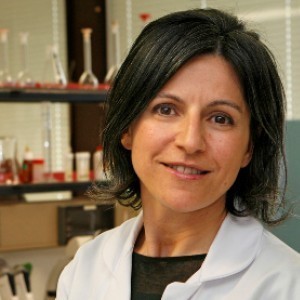
Marta López Alonso, veterinarian by training, is currently a professor at the Department of Animal Pathology at the University of Santiago de Compostela (Spain). From her PhD in the 90s—supervised by the ecotoxicologist Professor Richard Shore (CEH Monks Wood, Cambridgeshire, UK)—early understood the essential role of the Environment in One Health. As member of multidisciplinary teams has participated and led numerous national and international projects evaluating the role of different animal species—from livestock to pets, or birds to aquatic organisms–as markers of environmental pollution. During the last decade she has also been involved in several projects related to sustainable agriculture, and particularly in organic farming. From 2006 she also actively collaborates with EFSA as member of several working groups related to environmental risk assessment, and currently is member of the EFSA FEEDAP Panel. She has also a great interest in non-formal education and participates in several summer schools’ projects (XuvenCiencia, EUCU.NET, Junior University of Porto) in workshops and other activities related environmental monitoring and sustainable agriculture.
Dr Barbara De Santis
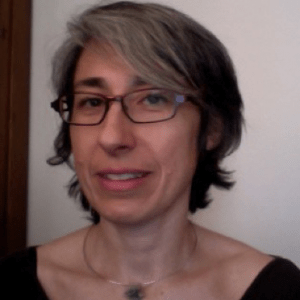
Background in Chemistry, PhD in Public Health and Microbiology. Since 2000 she is a Researcher in the mycotoxin and plant toxins (M&PT) section of the Food Chemical Safety Unit in the Department.
Deputy director of the National Reference Laboratory (NRL) for mycotoxins in food and feed, director of the NRL for plant toxins in food; currently responsible for the analyses of M&PT in food, feed and bio-fluids (laboratory accredited under EN ISO/IEC 17025:2017 standard).
Involved in institutional activities of official control acting as a M&PT specialist consultant for the Ministry of Health for the definition of national control plans; quality & management of monitoring data; M&PT exposure assessment.
Leader and partner in national and international projects on method development and validation for M&PT in food, feed and bio-fluids; on biomonitoring; on exposure assessment; on risk assessment; on sampling along food and feed chain. Participates in technical committees as national delegate for the Competent Authority in the Expert Committee of Agricultural Contaminants DG-Santè; expert in CEN/TC275 Working Group 5 Biotoxins, in CODEX ALIMENTARIUS e-working groups. Co-author of peer reviewed publications and chapter books. h-index excluding self-citations, 18.
Prof Roberto La Ragione
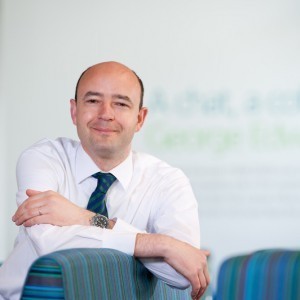
Professor Roberto La Ragione graduated in 1995 and then went on to study for a post graduate degree in veterinary microbiology at the Royal Veterinary College (University of London). In 1996 he moved to the government Veterinary Laboratories Agency to undertake a PhD on the pathogenesis of E. coli in poultry. On completion of his PhD, he commenced a post-doctoral position at Royal Holloway (University of London), studying E. coli virulence factors and vaccine development. In 2005 Roberto was appointed head of pathogenesis and control at the AHVLA and in 2010 he was appointed Professor of Veterinary Microbiology and Pathology at the University of Surrey. Roberto gained the FRCPath in 2010 and in 2012 was appointed the Associate Dean for Veterinary Strategy in the new School of Veterinary Medicine at the University of Surrey. In 2014 he established the Surrey Veterinary Pathology Centre and was the Director until 2020. He is currently the Head of Pathology and Infectious Diseases and Deputy Head of the School of Veterinary Medicine at the University of Surrey. Roberto is the current Chair of the Royal College of Pathologists Veterinary Pathology Specialty Advisory Committee, Chair of the Humanimal Trust, a member of the APHA science advisory board and a member of the Houghton Trust. Roberto is the past president of the Med-Vet-Net Association and the Veterinary Research Club. Roberto is an Associate member of the European College of Veterinary Microbiology (AECVM). In 2020 he was awarded Honorary Associateship of the Royal College of Veterinary Surgeons (HonAssocRCVS).
Roberto’s research has focused largely on the analysis of colonisation, shedding and transmission of E. coli, Campylobacter, Salmonella and other foodborne pathogens by all farmed animal species and he has led several commercial, BBSRC, EPSRC, MRC, Defra, Innovate and EU projects. Roberto has published over 150 peer reviewed publications in host-microbe interactions with a particular emphasis on foodborne pathogens and endemic diseases of poultry. His current research focuses on AMR transmission and the pathogenesis of food-borne pathogens with a particular interest in the development of rapid diagnostics and intervention strategies, including vaccination and pre and probiotics for the control of bacterial pathogens in animals. Roberto is the OHEJP WP6 leader and oversees all the OHEJP activities at Surrey.
Dr Piyali Basu

Dr Piyali Basu has a specialised background of Microbial genetics after graduating with an honours degree in Biotechnology from the University of Surrey (Surrey) and completing a PhD in Systems and Synthetic Biology from Brunel University (London). During her professional career, Piyali has worked as a Research Scientist in the drug manufacturing industry and renewable energy industry. After her PhD, she worked as a Post-Doctoral researcher and published on the intracellular metabolism of Mycobacterium tuberculosis. She has completed the Project Management accredited certification schemes, PRINCE2 © and PRINCE2 AGILE ©, both globally recognised qualification and best practice for project management. In 2018, Piyali joined the One Health EJP as the Education and Training activities Project Manager. Piyali is also the Project Manager for the Communications Team and manages and oversees the OHEJP’s activities, and together with the Communications Team, has grown and built a robust communication strategy and infrastructure to communicate the OHEJP’s scientific outcomes, educational programmes and training events effectively to the appropriate target audiences.
Dr Jade Passey
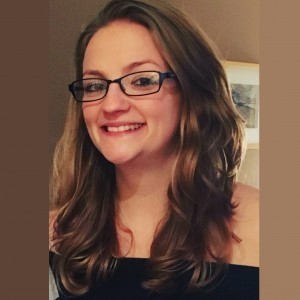
Dr Jade Passey is responsible for all digital aspects of the OHEJP communications. Her background is in Veterinary Microbiology having graduated with an honours degree in Veterinary Bioscience and also completing a PhD in Veterinary Microbiology. Jade joined the OHEJP in 2018 as part of the Communication Team. Since joining the consortium, Jade has played a key role in the development and implementation of the OHEJP Communication Strategy and continues to grow the OHEJP’s online presence via the website, social media and scientific copywriting. Jade’s key focus is to grow the OHEJP’s audience and ensure that scientific outputs are disseminated in an impactful and sustainable manner.
Elaine Campling
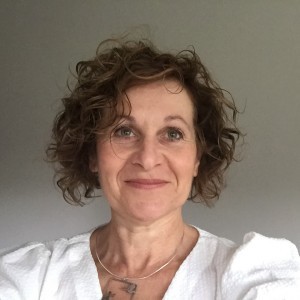
Elaine Campling is a professional graphic designer and has extensive experience with brand and marketing communications. Elaine joined the OHEJP Communication Team in January 2020 to complement the existing skillset within the Team with her creative specialism. As the consortium has become established and expanded, it has been essential to capitalise on this expertise by growing the audience with a strong visual brand presence: this is Elaine’s primary focus within the OHEJP consortium.
Dr Marina Patriarca
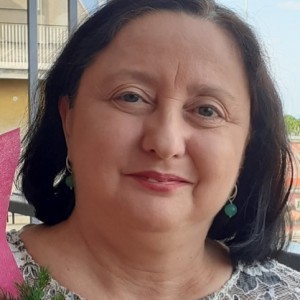
Marina is a Senior Scientist at the Italian National Institute of Health, Department of Food safety, nutrition and veterinary public health. Her areas of work experience cover analytical chemistry, clinical biochemistry, metrology & quality assurance applied to analytical sciences, proficiency testing for trace elements in clinical and food samples, and food safety related to environmental and industrial contaminants. She coordinates the activities of the Italian National Reference Laboratory for metals and nitrogenous compounds in foods and, in this role, contributes to the EU SANTE Working Group on “Environmental and industrial contaminants”. She supports the Department Quality Management System for all metrological issues and the validation of methods for chemical analysis. Since 2005, she is representing Italy in Eurachem, has contributed to the development of authoritative guidance, served in the Executive Committee since 2009, then as Chair (2018-2020), and currently chairing the Eurachem Working Group on Reference Materials. She is an experienced trainer, at national and international level, on technical issues related to the application of ISO/IEC 17025 and ISO/IEC 17043 in the area of food safety, and was a member of the Editorial Board of the EC-JRC TrainMiC (Training in Metrology) project from 2006 to 2011. Author of more than 100 scientific publications, since 2001 she is a member of the Editorial Board of the Journal of Analytical Atomic Spectrometry “Atomic Spectrometry Updates”, with a specific interest in Topic Group 2 “Advances in the analysis of clinical and biological materials, foods and beverages”, which she chairs since 2020.
Sara Perestrelo
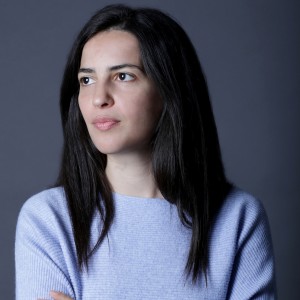
Sara Perestrelo received her Masters in Veterinary Medicine in 2015 from the University of Porto. During her studies, she spent time abroad in Brazil at the University of São Paulo and was also a research intern at the National Institute of Animal Health in Bangkok. Currently, she works at the Federal Insitute for Risk Assessment (BfR) in Berlin as a Research Assistant in a project from the One Health EJP consortium, with a focus on source attribution modeling and AMR. Sara´s interest in innovation, took her to learn Design Thinking at the Hasso-Plattner-Institut, and nowadays she enjoys bringing this mindset into Public Health. Sara is also the creator and host of “Cracking One Health”, a podcast dedicated to One Health.
Dr Ludovico Sepe
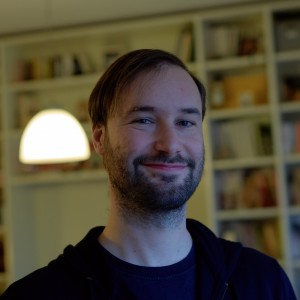
Ludovico Sepe holds a PhD in Infection Biology from the Max Planck Institute for Infection Biology (DE). He took part in research projects in Denmark, Germany, India and Israel. Currently, he is involved in the work package Science to Policy Translation of the One Health European Joint Programme at the German Federal Institute for Risk Assessment (BfR). He ensures the best use of the outcomes of the consortium by establishing appropriate dissemination activities targeted towards European and international organisations, and by taking part in relevant networking activities such as consultations with stakeholders. He runs a blog dedicated to One Health (https://ludosonehealth.blogspot.com/)
Dr Marco Cristofori
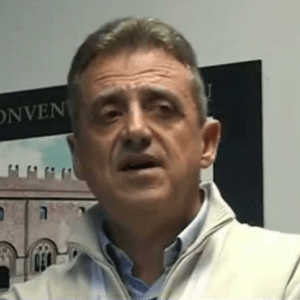
Marco Cristofori Director of the Regional Center for Global Health Umbria Italy. Head of the epidemiology, surveillance and health promotion service of the local health authority Umbria 2. I am part of the national Italian group for surveillance. I have been dealing with one health for years in a global health perspective and we collaborate as a regional centre with international institutions, cooperation, and non-profit associations.
Dr Alexandru Supeanu
![Alexandru Supeanu HS[1] Alexandru Supeanu HS[1]](https://onehealthejp.eu/wp-content/uploads/2021/07/Alexandru-Supeanu-HS1-300x300.jpg)
Dr. Alexandru Supeanu is one of the leading One Health advocates in Romania, having established, in 2015, the first NGO in Romania with the mission to implement the concept in Romania and not only and having presided the Executive Council of Students for One Health for one year in 2017-2018. His professional experience accounts amongst others the co-authoring 15 scientific articles and 16 patents, the organization of 5 international scientific manifestations, participation in 21 national and international scientific research programs and grants, and elaborating national provisions in the sanitary veterinary and food safety field from his position of counselor at the National Sanitary Veterinary and Food Safety Authority in Romania. Dr. Supeanu also has a one year experience as a fellow of the European Food Safety Authority in the field of risk assessment of the food chain (EUFORA Program). He is currently a PhD student studying risk assessment of animal infectious diseases at the Faculty of Veterinary Medicine in Bucharest.
Dr. Marcello Sala

Dr Marcello Sala is a Senior Veterinary Epidemiologist at Epidemiology and Environmental Biomonitoring Unit of the Istituto Zooprofilattico Sperimentale Lazio e Toscana in Rome- Italy.
Education and training:
- V.M. Degree in 1996
- Postgraduate School Degree in Avian and wildlife Pathology, 2001
- Improvement course in Epidemiology for Public Health Officers, 2001
- Master’s Degree in Applied Epidemiology, 2005
He has 20 years of experience in applied epidemiology aimed at the prevention and control of infectious diseases and zoonoses. He mainly works in the planning and evaluation of surveillance systems aimed at recommending evidence-based interventions to local, regional or national public health authorities..
He provides epidemiological expertise to 3 National Reference Labs (NRL Equine Diseases; NRL Equine Infectious Anemia; NRL Veterinary Antimicrobial Resistance) in the field of disease surveillance and in research projects related to equine viral diseases and antibiotic resistance in bacteria of animal origin.
Since 2005 he has developed specific skills related to animal biomonitoring programs of environmental chemical contamination, promoting projects aimed at developing surveillance models and prevention tools.
He has about 25 peer-reviewed publications.
Awards: The 2006 William H. Foege Award for Outstanding Public Health Intervention – 55th Annual Epidemic Intelligence Service Conference April 26, 2006 (CDC) Atlanta, Georgia (USA)
